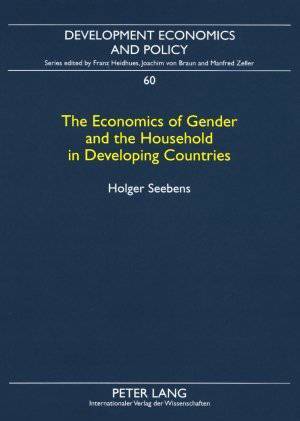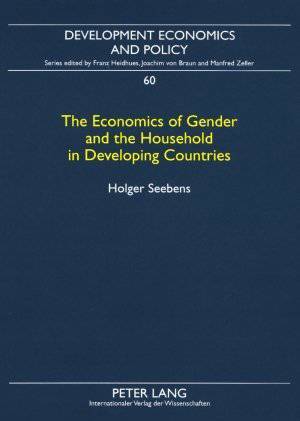
- Afhalen na 1 uur in een winkel met voorraad
- Gratis thuislevering in België vanaf € 30
- Ruim aanbod met 7 miljoen producten
- Afhalen na 1 uur in een winkel met voorraad
- Gratis thuislevering in België vanaf € 30
- Ruim aanbod met 7 miljoen producten
Zoeken
The Economics of Gender and the Household in Developing Countries
Dissertationsschrift
Holger Seebens
€ 102,95
+ 205 punten
Omschrijving
This study focuses on gender differences and their implications for household decision making in terms of production, consumption, fertility and the measurement of welfare. Using econometric approaches, the study reveals that different preferences as well as unequal access to resources determine the outcomes of household decisions. However, preferences and responses to inequality are not static but change depending on risk behavior and the institutional setting as demonstrated with examples from agricultural production and household demand for consumption goods. The means to translate preferences into actual demand depend on the bargaining power married women have in household decision making. Furthermore, the results reveal that apparent gender differences in terms of demand lead to an identification problem of adult equivalence scales, when these are estimated using demand data.
Specificaties
Betrokkenen
- Auteur(s):
- Uitgeverij:
Inhoud
- Aantal bladzijden:
- 130
- Taal:
- Engels
- Reeks:
- Reeksnummer:
- nr. 60
Eigenschappen
- Productcode (EAN):
- 9783631546499
- Verschijningsdatum:
- 29/12/2008
- Uitvoering:
- Paperback
- Formaat:
- Trade paperback (VS)
- Afmetingen:
- 145 mm x 208 mm
- Gewicht:
- 158 g

Alleen bij Standaard Boekhandel
+ 205 punten op je klantenkaart van Standaard Boekhandel
Beoordelingen
We publiceren alleen reviews die voldoen aan de voorwaarden voor reviews. Bekijk onze voorwaarden voor reviews.







